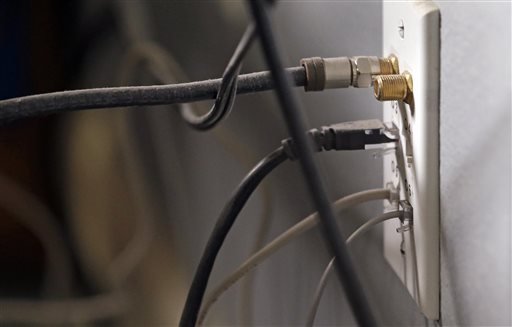
On Saturday evening, after a lovely stroll along Regents Canal, I found myself poised in Camden. Wonderful, I thought, I’m in one of the most vibrant parts of London. There will be lots to do, I can go to an impromptu concert or comedy night. Just let me google what’s on tonight.
After a good 45 minutes I was fed up and down and my phone battery was almost dead. Tonight, an internet search for live music in Camden had resulted in an overwhelming deluge of content: listings on dodgy-looking websites that screamed with pop-ups when clicked; map listings that insisted on trying to download other apps before loading; ticket sites for major music venues whose concerts sold out months in advance; reviews of events that seemed ideal until I realized they had already happened; and of course reams of sponsored posts that are almost indistinguishable from real ones. I gave up and just walked into the first pub that had a live music sign here on the door.
I’ve since tried and failed to use the Internet to: buy artificial flowers that I can use for a fancy dress party (Amazon shows me dozens of nearly identical listings that aren’t what I want but have clearly hacked keywords); gain clarity on the legal terms for a contract I’ve been asked to sign (I’m directed to law firm blogs who spin my head with legalese and then try to sell me services); and Japanese range research (apparently now a culture war issue). There were too many pop-ups, cookies, sponsored posts, tracking requests. It’s exhausting, daunting and irritating.
It was not like this. I know this makes me look a hundred years old, but I remember when the internet was usable. Not just usable magic. Every answer to every question, right there at your fingertips. Yes, I remember teachers warning us that Wikipedia wasn’t a reliable source of scholarship, but for everyday stuff, it worked. Recipes, travel guides, instructions for setting things up, recommendations for cool things to read, watch and do.
Now it’s a mess. I’m not entirely sure what broke it, but I’ve read quite a few articles and tweets over the past couple years about how SEO hacks and machine learning have destroyed search engines. Google’s algorithm has essentially started eating itself: if you don’t know exactly what you’re looking for, it can’t help you, and even if you do it’ll try to shove all sorts of irrelevant nonsense into your browser before it finds it.
And it’s not just about Google. Twitter may not have completely collapsed under the weight of Elon Musk’s aggressive makeover, but trolls and spambots thrive as the algorithm recommends increasingly bizarre posts to me (no, I’m not interested in reviews of reality shows I haven’t seen in the media I’ve never heard of what I don’t follow, or cryptocurrency scams DMed to me every day). Facebook is a graveyard of cultivated content and ghostly memories from a time when posting blurry photos from a night out was considered a key part of the student experience. Instagram is just LinkedIn for aspiring influencers. LinkedIn is fine, LinkedIn.
As for the rest of the internet, the fan communities, the random blogs, the weird niche websites dedicated to board games or alternative fashion or snow ocelots, I’m sure some still exist somewhere. It’s just that they’ve gotten harder and harder to find unless you already know exactly where they are.
Content from our partners
I’m not the only one who feels that something, somewhere, has gone wrong. I have no idea what to do online anymore, complains the journalist (e New statesman columnist) Marie Le Conte in her recent book Escape: How a Generation Shaped, Destroyed, and Survived the Internet. The boundless serendipity of the early online world has gradually been mainstreamed into the big social media platforms (you know, the ones that monetize our outrage and anxiety). Like me, Le Conte came of age at the same time as the world wide web, and watched the anarchic, atomized wild west of the 2000s be overwhelmed by a few giants who tamed, sanitized, and made it completely fun. Everyone who spends time online now frequents the same platforms, which has had a negative effect on how those platforms feel – our spaces make us feel tense because we no longer feel truly safe in them. Our internet is both open and flat and not a good place to be.
My difficulties finding a concert in Camden are part of the same trend. Somewhere along the way, the idea that the Internet existed to be useful to us morphed into the understanding that we exist to be useful to it, mostly so that it could be sold or manipulated in some way. I’ve never cared much for the adage if you’re not paying for the product you are the product because I felt like at least I was getting something of value you can have my data as long as you show me what I’m looking for. Now it’s a different game. Data was being mined, teased and trolled, and for what? So we can keep getting data mined, taunted, and trolled, in the futile hope that eventually there might be someone who can explain what vacant possession means in language that doesn’t sound like it’s from a legal textbook.
There’s been so much hype about ChatGPT (now six months old) and other chatbots destroying our jobs and making fact-checking impossible, and now experts warn AI could lead to extinction Human. But I don’t think we have to be that hyperbolic to see how technology is destroying something precious: itself. Or rather, the version of herself that looked like a spell in 2006, when you could ask what am I supposed to do tonight? and he would tell you. I don’t think it will come back, the incentives are all skewed, the tech giants are too powerful, the algorithms have a life of their own and there is no stopping them. The internet now keeps us on it for as long as possible by not being useful or engaging, but simply eliminating all alternatives. Here we are: pop-ups, trolls and sponsored posts have won.
Ah well. There is always Wikipedia.
[See also: The Reeves doctrine: Labours plan for power]
#internet #unusable


